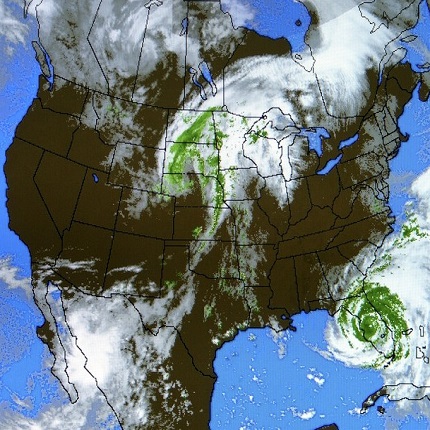 Tornados, floods, winter storms, hurricanes, wildfires and earthquakes can cause tremendous destruction. In recent years, we’ve seen a rise in natural disasters. Some strike without warning, while others follow a seasonal pattern.
Tornados, floods, winter storms, hurricanes, wildfires and earthquakes can cause tremendous destruction. In recent years, we’ve seen a rise in natural disasters. Some strike without warning, while others follow a seasonal pattern.
If you’re a commercial real estate owner or landlord, you should have a plan to mitigate the effects of a natural disaster on your business or your tenants. Natural disasters are often not preventable, but you can take steps to protect yourself, your tenants and your property. Sound commercial real estate insurance and the right operational policies and practices can lessen the impact of the disaster. Consider the massive winter storm that struck Texas in February of 2021. It resulted in estimated losses of $10.3 billion and more than 500,000 insurance claims—all from one storm.
Insurance For Owners And Renters
Whether you live in a hurricane zone, the tornado belt or wildfire country, you first need to ensure that you and your tenants both have good insurance policies. Your lease should require your tenants to maintain insurance policies that will enable them to return to business as usual if assets are damaged in severe weather events. In addition to having adequate coverage in place, most landlords require that tenants’ insurance be extended to them. To do this, your tenant will have to include you as an “additional insured,” “named insured” or “interested party” on the insurance policies.
As a property owner, you’re likely most concerned with the property’s structure. However, it’s important to remember that your tenants have thousands of critical assets to support their business’s daily operations. If you’re leasing out office space, there could be millions of dollars worth of computers, servers, files and furniture in the space. If you’re leasing to industrial tenants, there could be millions of dollars worth of equipment and machinery, raw materials, product inventory and more. In many cases, everything your tenants need to run their business will be stored within the walls of the property you own.
If a natural disaster damages the property and items within, your tenants will take a hit. They may be unable to do business for an unknown amount of time. Replacing the damaged equipment will require significant funds. It’s important to make sure that your tenants are not underinsured and that they’ll be able to get back on their feet if property damage occurs. Otherwise, you risk unpaid rent or a lost tenant.
It’s also important to ensure the insurance policy covers fire. Fire is a large risk to any structure, even more so if weather conditions are just right for a faster spread. A 2015 study found that 10% of small business owners filed a claim for fire damage in the past five years. Sure, that may not seem like a large number, but the average claim was nearly $35,000. That amount, for some, can be the difference between staying in business or not. And keep in mind that these numbers are from 2015, before four of the worst wildfires in American history.
Many commercial real estate leases have a force majeure clause for further protection. Hopefully, this clause will never come into play. However, if a serious disaster strikes, a force majeure clause can temporarily put many of your obligations as a landlord on hold until the disaster is over and it’s safe to resume business.
Documentation And Walkthroughs
Keep records of your tenants’ insurance policies. Store all tenant information, including their lease, insurance policies and other documents, in one easy, accessible location. That way, you can refer back whenever necessary and update accordingly. You’ll need a system to stay on top of this and ensure the tenants are providing their most current certificate of insurance, otherwise known as COI.
Planning ahead and creating internal policies are also essential. This is especially true if you live in an area where a certain weather event is more likely to occur. For example, if you live near the Florida coast, you should have a detailed plan for keeping your employees and property safe during tropical storms and hurricanes. And you should also have a plan for the recovery period if flooding or destruction occurs. According to the National Oceanic and Atmospheric Administration, an average of 17.7 hurricanes occur per decade—but recent years have seen record-breaking numbers of named storms (including both tropical storms and hurricanes), with 18 in 2019 and 30 in 2020. Considering that the average commercial lease is between three and years, it’s not unreasonable to assume that you may be affected by a tropical storm or hurricane at some point in your life.
In addition to requiring proper insurance and having a plan for recovery, walk your properties annually and make sure you have images and videos of all your assets. After all, outdated photos and videos from more than one year ago are likely going to be irrelevant by the time the next unexpected disaster hits. If this sounds time-consuming, don’t worry: This task is easy to delegate and shouldn’t take long.
As soon as you have photo and video documentation of everything, upload it to a safe place online. That way, you can access your documentation from anywhere and at any time. Since it’s not stored on a computer or a server in your office, it won’t be destroyed if disaster hits. With regularly updated documentation, it will be easier to successfully file claims with commercial real estate insurance to ensure a smooth recovery process.
Final Thoughts
Natural disasters are inevitable, but having the proper commercial real estate insurance in place will make the difference in time of need. It would behoove commercial owners to speak with a qualified and licensed insurance professional to ensure all appropriate coverage is met. It’s better to be safe than sorry.
Source: Forbes

